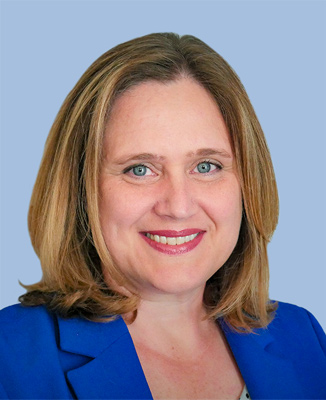The Commission on Cancer (CoC), a quality program of the American College of Surgeons (ACS) has granted Three-Year Accreditation to the cancer program at the Cecil B. Highland, Jr. & Barbara B. Highland Cancer Center at United Hospital Center (UHC).
To earn voluntary CoC accreditation, a cancer program must meet 34 CoC quality care standards, be evaluated every three years through a survey process, and maintain levels of excellence in the delivery of comprehensive patient-centered care.
Because it is a CoC-accredited cancer center, UHC takes a multidisciplinary approach to treating cancer as a complex group of diseases that requires consultation among surgeons, medical and radiation oncologists, diagnostic radiologists, pathologists, and other cancer specialists. This multidisciplinary partnership results in improved patient care.

“It is an honor for the cancer center at UHC to be recognized once again as an accredited program by the Commission on Cancer, as our cancer center has received consecutive approval since 1989,” said Angie Malone, DNP, APRN, ACNS-BC, OCN, AOCNS, NE-BC, director of oncology at the Cecil B. Highland, Jr., & Barbara B. Highland Cancer Center at UHC. “Physicians and staff communicate and collaborate to provide high quality cancer care to our patients in North Central West Virginia. This approval acknowledges national recognition for the entire cancer care team at UHC”
The CoC Accreditation Program provides the framework for UHC to improve its quality of patient care through various cancer-related programs that focus on the full spectrum of cancer care including prevention, early diagnosis, cancer staging, optimal treatment, rehabilitation, life-long follow-up for recurrent disease, and end-of-life care. When patients receive care at a CoC facility, they also have access to information on clinical trials and new treatments, genetic counseling, and patient centered services including psycho-social support, a patient navigation process, and a survivorship care plan that documents the care each patient receives and seeks to improve cancer survivors’ quality of life.
Like all CoC-accredited facilities, UHC maintains a cancer registry and contributes data to the National Cancer Data Base (NCDB), a joint program of the CoC and American Cancer Society. This nationwide oncology outcomes database is the largest clinical disease registry in the world. Data on all types of cancer are tracked and analyzed through the NCDB and used to explore trends in cancer care. CoC-accredited cancer centers, in turn, have access to information derived from this type of data analysis, which is used to create national, regional, and state benchmark reports. These reports help CoC facilities with their quality improvement efforts.
The American Cancer Society estimates that more than 1.7 million cases of cancer will be diagnosed in 2018. There are currently more than 1,500 CoC-accredited cancer programs in the U.S. and Puerto Rico, CoC-accredited facilities diagnose and/or treat more than 70 percent of all newly diagnosed patients with cancer. When cancer patients choose to seek care locally at a CoC-accredited cancer center, they are gaining access to comprehensive, state-of-the-art cancer care close to home. The CoC provides the public with information on the resources, services, and cancer treatment experience for each CoC-accredited cancer program through the CoC Hospital Locator at https://www.facs.org/search/cancer-programs.
Established in 1922 by the American College of Surgeons, the CoC is a consortium of professional organizations dedicated to improving patient outcomes and quality of life for cancer patients through standard-setting, prevention, research, education, and the monitoring of comprehensive, quality care. Its membership includes Fellows of the American College of Surgeons. For more information, visit: www.facs.org/cancer.
Please note, the information provided throughout this site is not intended or implied to be a substitute for professional medical advice, diagnosis, or treatment. All content, including text, graphics, images, and video, on or available through this website is for general information purposes only. If you are experiencing related symptoms, please visit your doctor or call 9-1-1 in an emergency.